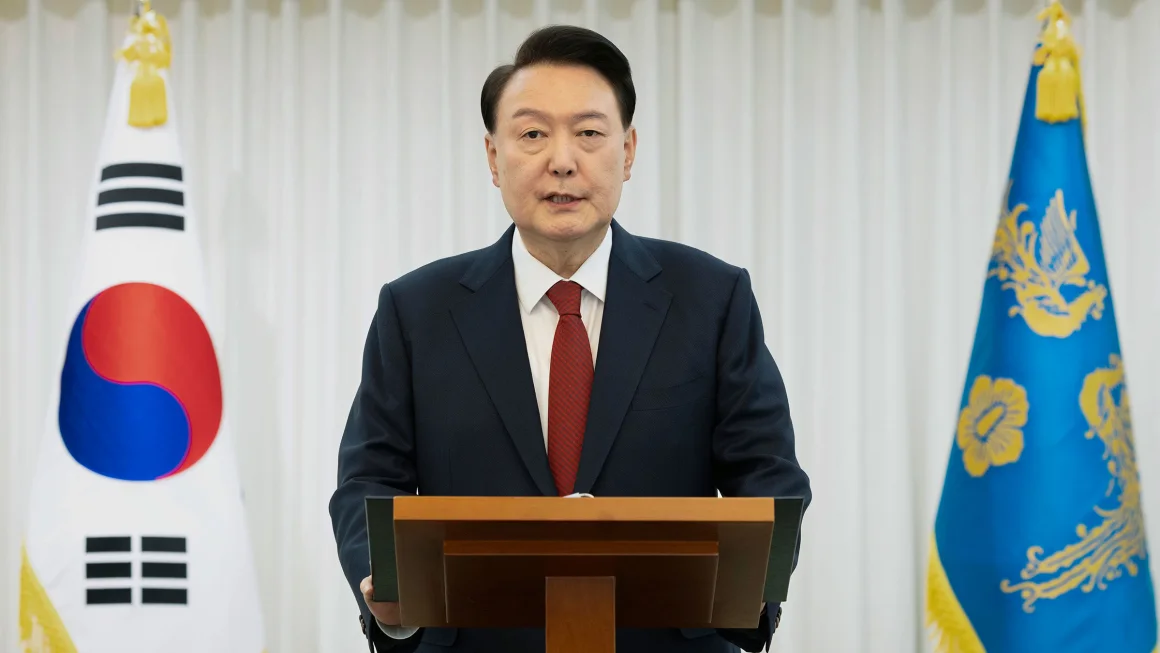In a dramatic turn of events, South Korea’s parliament has impeached President Yoon Suk Yeol following his abrupt declaration of martial law earlier this month. The impeachment motion was passed with an overwhelming 204-85 vote, temporarily suspending Yoon’s powers and duties pending a decision by the Constitutional Court. This unprecedented move has brought South Korea’s political landscape into sharp focus, stirring intense debate over the use of executive power in emergencies.
The controversy began when President Yoon declared martial law during a nationally televised address, accusing opposition lawmakers of collaborating with North Korean factions to undermine his government. Martial law, last invoked over 40 years ago, led to a temporary suspension of civil rights and military control over civilian functions. This declaration, however, was rescinded within hours by opposition-led lawmakers, who gathered to annul the decision amidst widespread public backlash.
The parliamentary impeachment vote reflects deep political divisions in South Korea. The Democratic Party and allied groups, holding the majority in the National Assembly, condemned Yoon’s actions as unconstitutional and labeled them as an authoritarian overreach. They argued that the martial law order failed to meet the legal requirements and posed a serious threat to South Korea’s democracy, established after decades of military-backed governments.
The Constitutional Court now has 180 days to decide whether to uphold Yoon’s impeachment. If upheld, a national election will be held within 60 days to choose a new president. The impeachment process itself underscores the challenges faced by South Korea’s constitutional framework in balancing executive authority with legislative oversight.
Yoon’s martial law declaration evoked memories of South Korea’s turbulent past, including military crackdowns during the country’s struggle for democratic reforms. His critics argue that his decision not only eroded public trust but also weakened his position domestically and internationally, further polarizing the nation’s politics.
South Korea’s political future now hinges on the court’s ruling, with observers anticipating significant repercussions for the country’s governance and its standing in the global arena.











